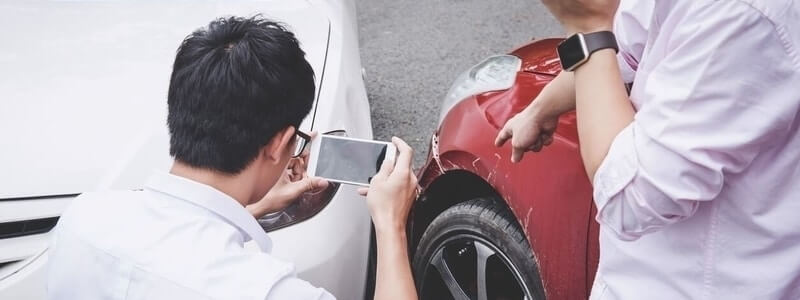Getting into a car accident is always an unfortunate experience that will put a damper on your day. You first deal with the shock, then the aggravation that trails it — getting out of your vehicle, exchanging information with the other driver, and taking pictures. But, what happens if the incident seems minor? Maybe there’s no damage to either vehicle — or maybe there’s a minor dent. Maybe the crash was at a low speed and things seem to be fine. Then, days or weeks later, you are served with a lawsuit. How does this happen? Is the other driver’s claim made up? If so, how can you contest it?
What’s a fender bender?
There’s no Florida Statute definition for the term fender bender. However, there are several other terms relating to car accidents. Specifically, Chapter 316.061 establishes that when the driver of any vehicle involved in a crash resulting only in damage to a vehicle or other property shall immediately comply with the following requirements:
- Stop at the scene — or as close to it as possible
- Ensure they are not obstructing traffic
In addition, Florida Statutes Chapter 316.066 states that if the accident involved a commercial motor vehicle, you are required to submit a Florida Traffic Crash Report within 10 days to the closest police department. You must include the following information:
- The date, time, and location of the accident
- A description of the vehicles involved
- The names and addresses of the parties involved — including passengers
- The names and addresses of witnesses
- The name, badge number, and law enforcement agency of the officer investigating the crash
- The names of the insurance companies for the parties involved
If nobody was injured, nobody complained about feeling hurt or not feeling well, nobody was driving under the influence of drugs and alcohol, and there was no commercial vehicle involved, you can simply exchange information with the other driver. Make sure not to obstruct traffic and to take as many pictures as possible.
Fake Injury Claims
Florida Statutes Chapter 817.234 establishes the definition of insurance fraud. In order for a person to be found to have filed a fake injury claim, the following elements must be met:
- The person had the intent to defraud or deceive.
- Presented a written or oral statement in support of their fraudulent claim for payment of insurance proceeds.
- The statement includes false, incomplete, or misleading information.
Doing so is a felony in the third degree. The punishment for such a crime is a fine of up to $5,000 and five years in prison. That being said, filing a claim after a relatively minor accident is not always about fraud. It is possible to think you feel fine after a crash, only to experience pain a few days later. This could be the result of a delayed injury, internal injuries, or aggravation of a pre-existing condition.
When a person files such a claim — and you doubt its veracity — your attorney can conduct an investigation through a process called discovery. This could involve taking the sworn statement of the person making the claim, as well as deposing witnesses, medical providers, and accident reconstruction experts. Your attorney could also request surveillance video, attempt to locate witnesses, and inspect photographic evidence. If the person is also claiming lost wages, your attorney could subpoena relevant records — such as paycheck stubs, tax returns, and information regarding their present employment and possible future employment prospects. Based on all the information collected, your attorney can design a strategy to contest the other driver’s personal injury claim.
Call Us at Clark Hartpence Law for a Consultation
Many factors affect the outcome of a case. If you or someone you love was involved in a car accident, call us at (855) 680-4911 or schedule a free consultation. We’ll consider all circumstances to determine your best next step. We can also ensure that you receive proper compensation for any present as well as future medical expenses relating to your neck injuries.
Disclaimer: This blog is for informational purposes only and does not create an attorney/client relationship.
